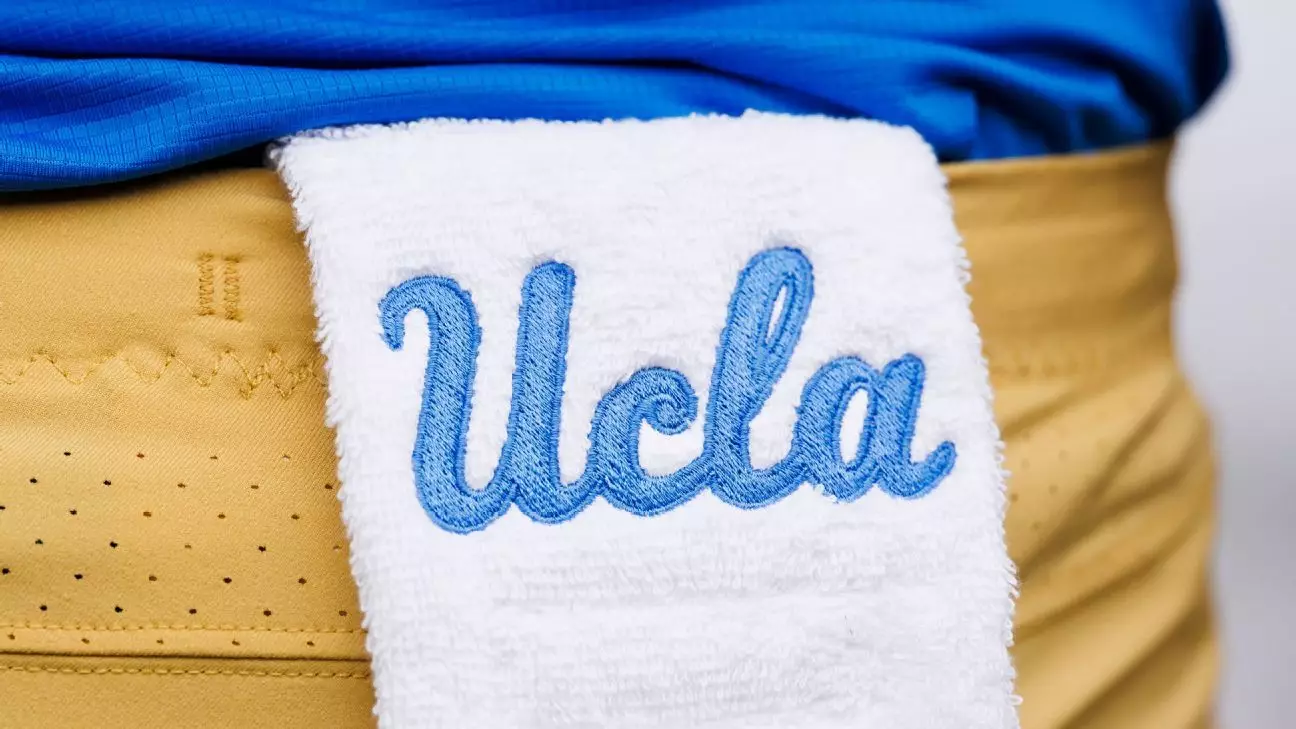The recent news surrounding Madden Iamaleava’s impending transfer to UCLA brings into sharp focus the complex intersection of familial connections, personal ambition, and the often unpredictable world of college football. This story comes with an undeniable layer of sweetness: the two brothers, entrusting their futures to the same program, could believably become a formidable duo on the field. Yet, beneath this seemingly heartwarming narrative lies a more troubling reality—a poignant reminder that loyalty in sports is often as disposable as a discarded game plan.
Madden’s decision to leave Arkansas after a brief, rollercoaster stint raises questions about the nature of commitment in the recruiting process. Originally, he pledged his support to UCLA, only to switch allegiances and commit to Arkansas, where he was seen as a highly coveted asset by Coach Sam Pittman. This flip-flopping reveals a possible lack of depth in the recruiting culture, which often prioritizes instant gratification and short-term gains over genuine commitment. It’s disheartening that decisions made during an athlete’s formative years can be swayed by myriad external factors, such as teammate placements and the allure of a storybook narrative like that of the Iamaleava brothers.
The NCAA Transfer Portal: A Double-Edged Sword
Madden’s entry into the NCAA transfer portal is nothing new; the current era of college sports is marked by unprecedented freedom for athletes seeking greener pastures. With four years of eligibility left, Madden initially seemed to have made the right choice by flipping to Arkansas, but he now heads back to UCLA, following in his brother’s footsteps. While it appears to be a strategic maneuver that could potentially revive his career, the situation also presents an ethical quandary regarding player loyalty. Should we cheer for players like Madden who clearly prioritize personal aspirations over longstanding commitments? This dilemma strips the sport of its foundational values: loyalty, perseverance, and growth within a program.
The criticism faced by college athletes who decide to transfer often overlooks a critical point: they must forge a path through an environment marked by rigidity and fierce competition. Madden’s decision—guided by personal ambition—is a stark reminder that the game has shifted; athletes must now think less about maintaining loyalty to a school and more about their potential success. While the narrative glorifying brotherhood has a comforting feel, the underlying motivations showcase a bittersweet truth—that sports, at times, can become an individualistic scramble for success despite familial bonds or previous commitments.
The High Stakes of Athletic Career Decisions
Madden Iamaleava’s move also highlights the immense pressure athletes feel in defining their futures amidst intense competition. Being ranked among the ESPN 300, with the weight of expectation constantly looming, can take a toll on any young athlete. The choice to head back to UCLA could be viewed as a sign of surrender, a response to the pressures and expectations placed upon him. However, it might also reflect a strategic decision—an acknowledgment that long-term success may lie with a program where his brother is already making strides.
Yet, this situation begs the question: what happens if this partnership does not yield results? The burden of expectations that comes from being the sibling of a standout athlete could inadvertently color Madden’s trajectory in the sport. Rather than fostering a supportive environment that encourages youthful athletes to excel, the relentless pursuit of excellence may lead to a pressure cooker atmosphere where the emphasis on achievement overshadows the journey.
In the end, the Iamaleava saga exemplifies the trials and tribulations of rising stars in a cutthroat field. It’s a cautionary tale illustrating how loyalty can sometimes be a fleeting notion—and the harsh realities that come with trying to carve out one’s own identity in a landscape dominated by high expectations and ambitious pursuits.


Leave a Reply